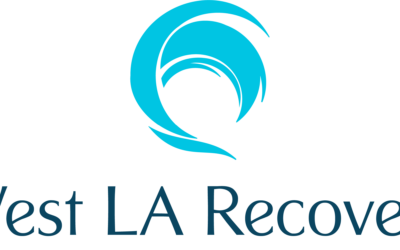National Recovery Month: Joining in the Significance National Recovery Month is a powerful reminder of the strength and resilience of millions of Americans who have overcome substance use disorders and mental health challenges. Established in 1989 by the Substance...
Blog
Insights and Inspiration
Our blog is a space for education, inspiration, and community. Featuring articles written by our experienced staff, guest experts, and even stories from those in recovery, we cover a range of topics from treatment approaches to personal wellness strategies.
Stay informed and inspired as you navigate your path to recovery. Our blog is updated regularly with new content designed to support and educate our community.
The Role of Recovery Communities in Overcoming Isolation Isolation and addiction create a destructive feedback loop that can trap you in cycles of substance use and despair. When you're struggling with addiction, the shame and stigma often drive you deeper into...
The Foundation of Recovery Support Systems Recovery support systems are the vital networks and resources that surround you during your journey to lasting sobriety. These systems create a protective shield of understanding, guidance, and practical assistance that...
Understanding Emotional Sobriety Emotional sobriety represents your ability to experience and manage feelings in a balanced, healthy way. It's a crucial component of addiction recovery that goes beyond physical abstinence from substances. Think of emotional sobriety...
Setting Realistic and Personal Recovery Goals Recovery isn't a race - it's a personal journey that requires thoughtful planning and realistic expectations. Breaking down your recovery path into smaller, achievable goals can transform an overwhelming process into...
Physical Signs of Strengthening in Recovery Your body sends clear signals when you're making progress in recovery. Physical changes often emerge as your system begins to heal and restore its natural balance. Key Physical Indicators: Metabolic Changes: You might notice...
Rebuilding Life After Addiction The journey of rebuilding life after addiction marks the beginning of a transformative chapter. This path requires dedication, self-discovery, and a willingness to embrace change. Your recovery journey isn't just about staying...
Understanding Group Therapy Group therapy is a type of psychotherapy where a small group of individuals, usually between 6 to 12 people, come together regularly to discuss their thoughts, feelings, and experiences. These sessions are led by trained therapists who...
The Recovery Plateau A recovery plateau occurs when your progress in addiction recovery seems to hit a standstill. You might feel stuck, experiencing a period where the positive changes you've worked hard to achieve appear to slow down or stop completely. Think of it...
Understanding Emotional Sobriety Coping Mechanisms for Dealing with Cravings Emotional sobriety goes beyond just not using substances - it's about learning how to deal with your emotions in a healthy way. When you're emotionally sober, you can experience all types of...
Dating in Recovery Dating during recovery presents unique challenges that require careful navigation and self-awareness. Your journey to sobriety has equipped you with valuable tools for personal growth, and these same tools can help you build healthy romantic...
The Importance of Balancing Work and Recovery Maintaining a healthy balance between work and recovery creates a strong foundation for lasting sobriety. Your professional life can provide structure, purpose, and financial stability - essential elements that support...
Understanding Addiction: A Complex Condition Addiction is not just about lacking willpower or being morally weak. It's a complicated condition that changes how your brain works, creating strong physical and psychological dependencies that can seem impossible to...
Nature-Based Activities multicultural multinational happy people running into the sun carefree and happiness, vacation on sea. Nature offers a powerful sanctuary for those in recovery. Stepping away from urban environments and immersing yourself in outdoor activities...
Importance of Self-Care in Sobriety Self-care isn't just a trendy buzzword—it's a crucial foundation for lasting sobriety. Your recovery journey demands attention to both your physical and emotional well-being, creating a balanced approach that supports long-term...
Importance of Building a Sober Social Circle Building a strong network of friends in sobriety creates a foundation for lasting recovery. When you surround yourself with people who understand and support your journey, you discover a sense of belonging that doesn't rely...
Preparation and Intentions for Sober Travel Setting clear intentions before your sober travel adventure creates a strong foundation for a successful, substance-free experience. Start by openly communicating your commitment to staying sober with your travel companions....
Relapse Prevention and Boredom Boredom is a hidden danger on your road to recovery. Many people recovering from addiction don't realize how powerful unoccupied time can be, but studies show that boredom can often lead to relapse. When you were actively addicted, your...
Addiction and Personal Identity Substance use disorders create a profound shift in how you view yourself. Your identity becomes intertwined with addiction, often overshadowing the core aspects of who you are. This transformation happens gradually - you might start...
Overview of Ibogaine and Ayahuasca Plant medicines have become powerful tools in treating addiction, with Ibogaine and Ayahuasca leading the way in psychedelic therapy. These natural substances offer different methods for healing and recovery. What is Ibogaine?...

















